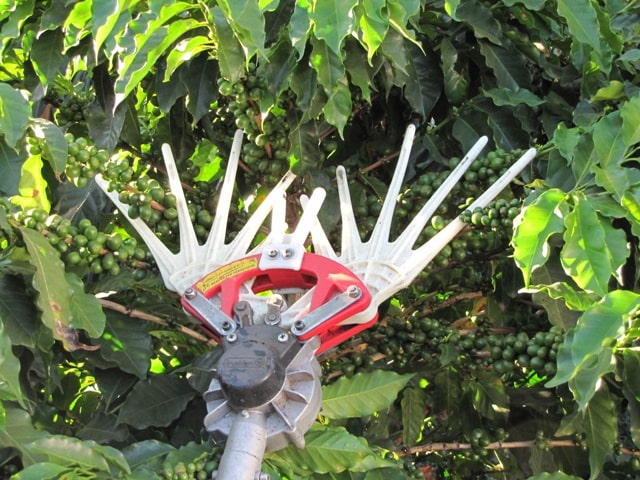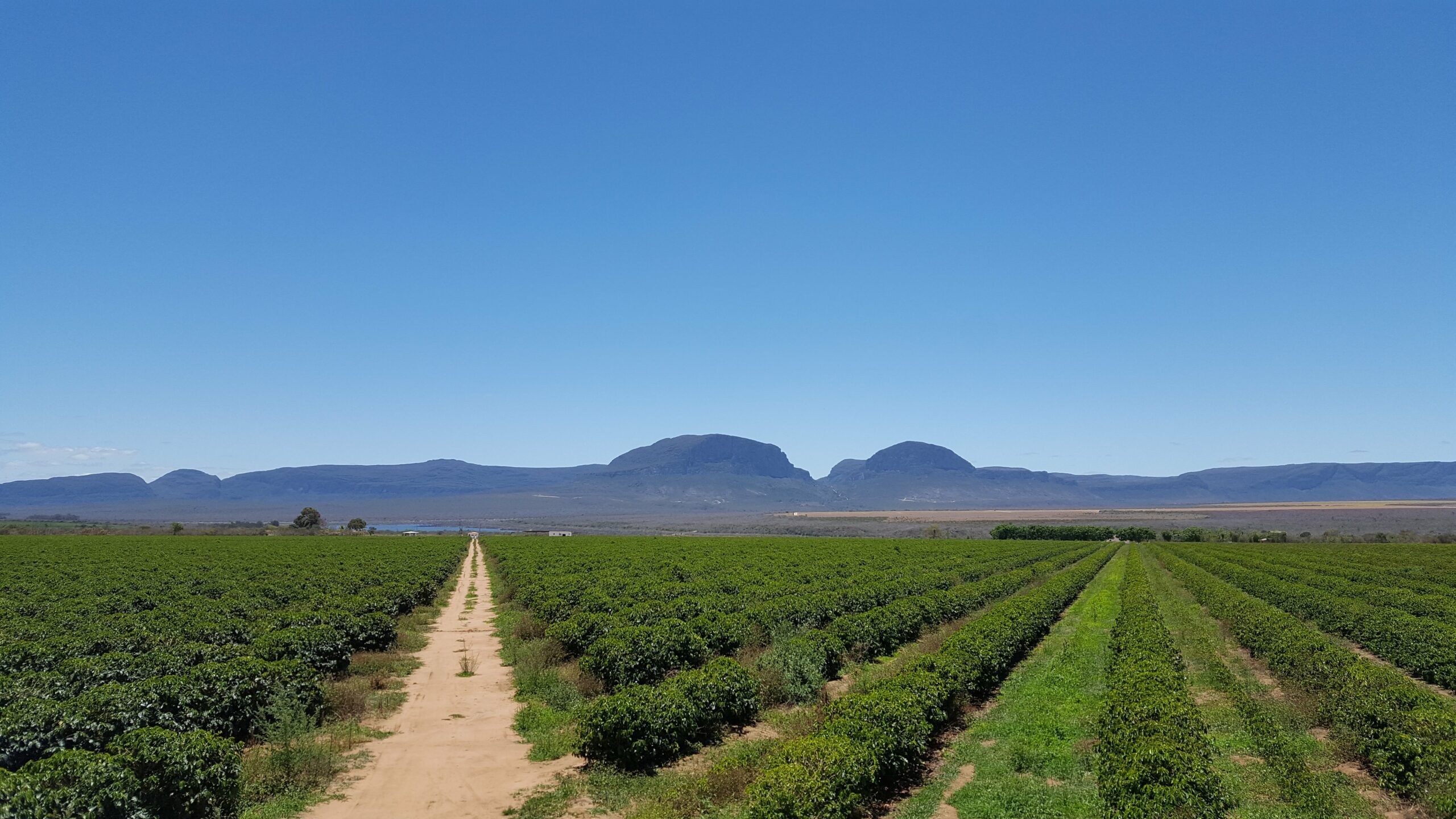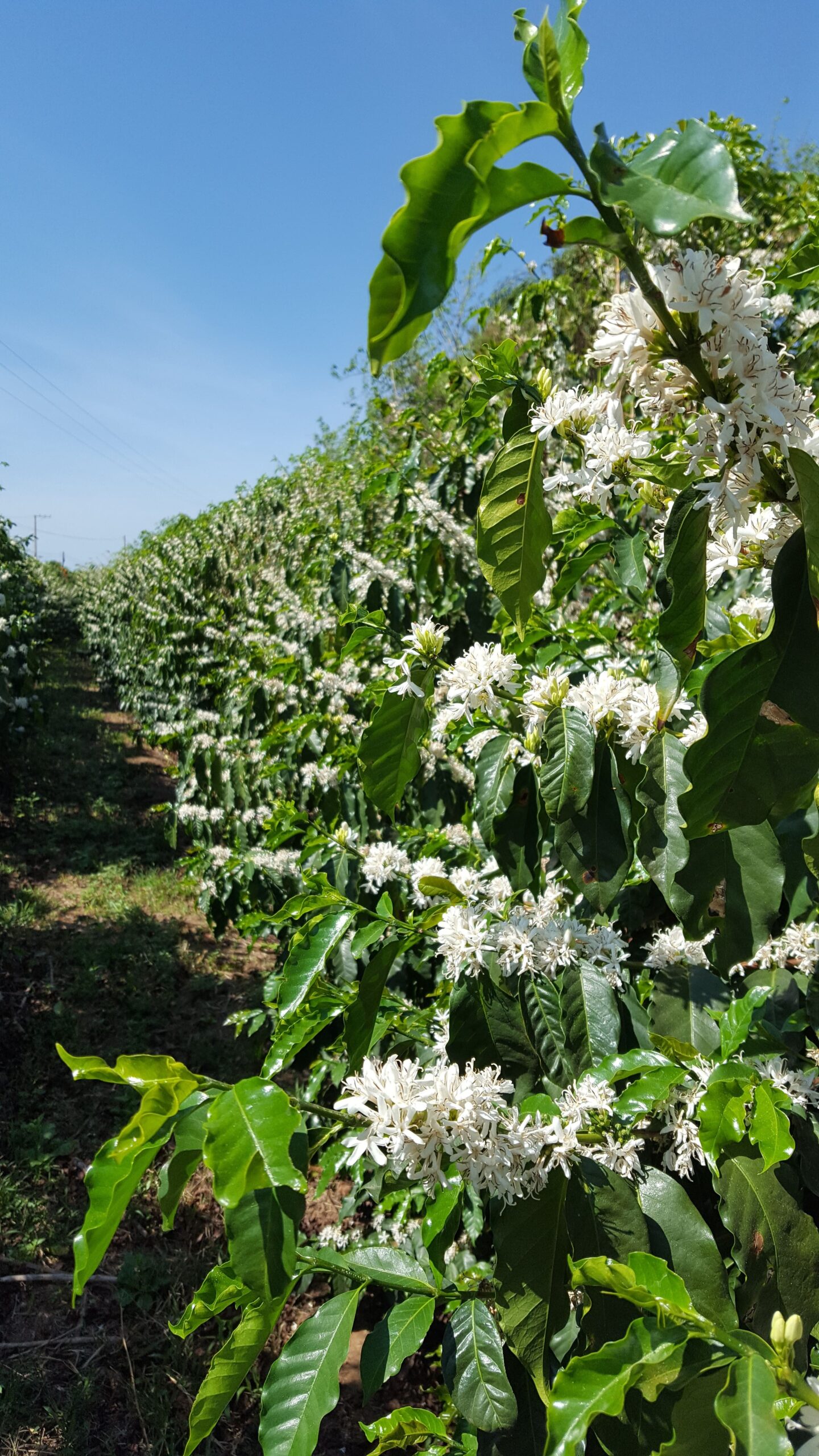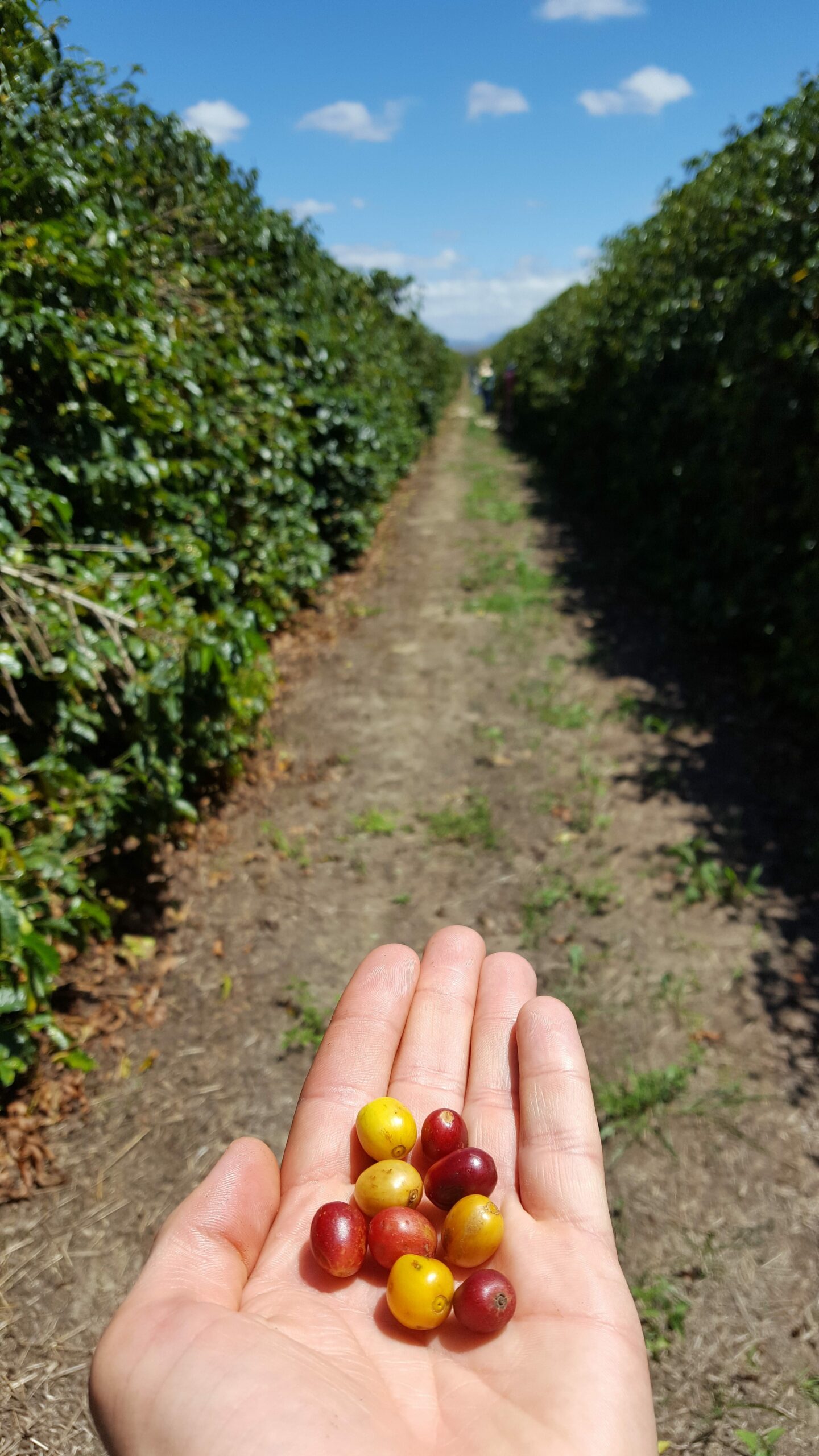Brazil is the largest coffee growing country in the world, responsible for 30 percent of coffee grown worldwide, about 74 percent of which is Arabica. Brazilian coffee is grown on large plantations designed to facilitate efficient, mechanized processes. Due to the relatively flat landscape and high minimum wages, mechanical harvesting is prevalent. To be clear, mechanized picking is no longer synonymous with strip picking, and the use of harvesters is often combined with derriçadeira, handheld machines that can be manually aimed at more ripe areas of the tree. The result is a kind of mechanized selective picking that delivers high quality arabica coffee at imposing scale.
Most Brazilian coffees are processed using natural and pulped natural processes, meaning the coffee is dried with all or a large amount of fruit on the bean. This process imparts sweet, fruity notes and produces a creamy body. The result is a well-balanced, nutty, chocolatey profile with low citric acidity and smooth body — a universally enjoyable cup that has become famous the world over.
Understanding Coffee Grades
Brazil Natural NY 2 17/18 is a large lot Arabica that is sorted by defect and screen size. NY 2 references the Green Coffee Association of New York standards, which is a top-quality grade that assures no more than 4 visible defects in a 300 gram sample. SSGC stands for Strictly, Soft Good Cup, which is a grading term that classifies cup quality. The 17/18 distinction indicates the bean size, namely that beans pass through a size 18 screen but are retained by a size 17 screen. (Screens have holes measuring in 1/64-inch increments.) This hard-working coffee is well priced, versatile and consistent.




